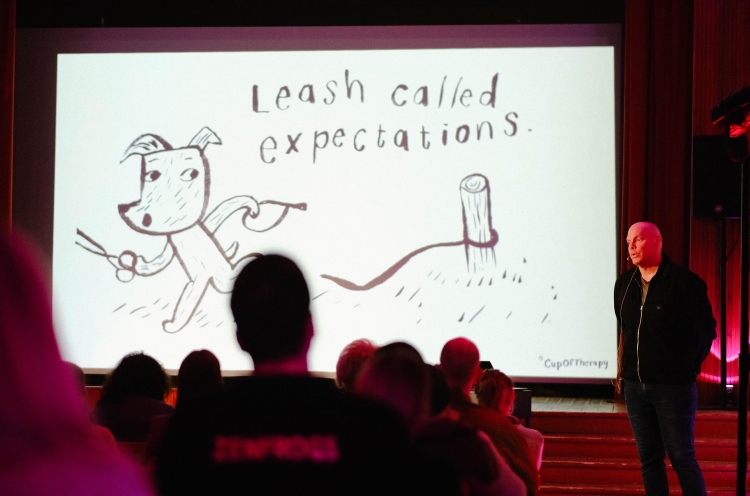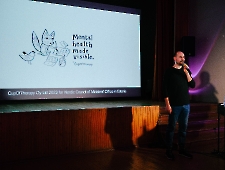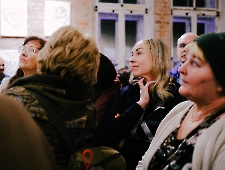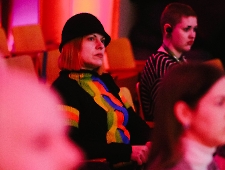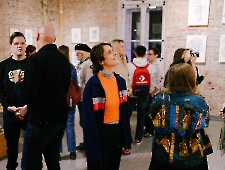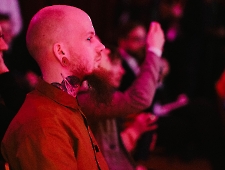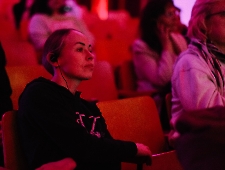I took a look at your website and Instagram to get a feel for what you do, and the way you tackle mental health through animal pictures is amazing. Where did the idea come from for CupOfTherapy?
Antti Ervasti (AE): That’s very kind of you to say so! Matti and I have known each other for years, and the first pictures we ended up using for CupOfTherapy were illustrated back in 2017. Even before then we’d talked about putting a picture book together combining what I know about psychotherapy with Matti’s illustrations. But the timing just wasn’t right.
One time we were chatting about what I’d been doing at work that week and we came onto the issues I tend to have to deal with. I couldn’t share any confidential information, of course, but I could tell him in general terms about the depression and other mental health concerns my clients present with. And that inspired him to start drawing.
Matti Pikkujämsä (MP): I always have a sketchbook on me. And that’s exactly what happened that particular time – Antti started telling me about his work and I started drawing. And without having to think about it much, I came up with these pictures of animals. He gave me his thoughts on them, and we both then came up with words to accompany them, to embody their message. That really started the ball rolling. Right there in the café I took a picture of what I was drawing and we uploaded it to Instagram. We set up a separate account straight away, and that’s basically how CupOfTherapy came about.
AE: Our aim was, and still is, to make mental health visible so that people can talk about stuff that’s linked to mental well-being without any guilt or shame.
We wanted to highlight the quality of mental health education and of the profession itself in the Nordic countries, and in particular in Finland. Psychotherapists are very well trained here. We’re all registered, and there are a lot of different institutions that keep an eye on what we do. In that sense, a basic knowledge of mental health is an export article in its own right, and that’s something we should be talking about a lot more. That’s a conversation we wanted to spark.
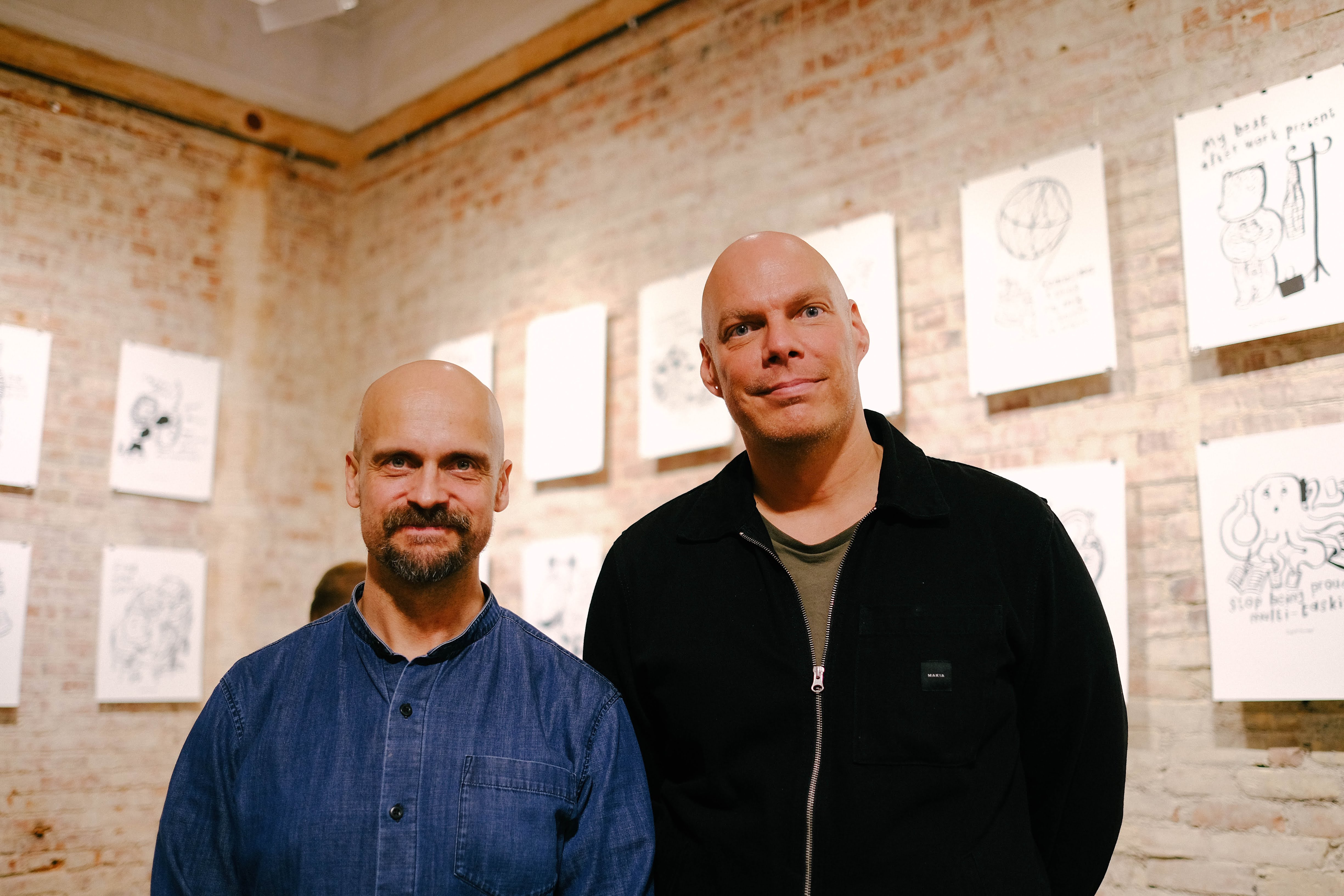
Psychotherapist Antti Ervasti and illustrator Matti Pikkujämsä decided to approach the topic in a new way - through animal pictures - and that's how CupOfTherapy was born. Photo: Anastassia Volkova
Have you crunched any numbers to find out which of the animals you’ve drawn is the most popular?
MP: We don’t have any proper stats, no, but we’ve seen how people have reacted to the drawings and noted what they’ve liked and shared. There’s one picture in particular that everyone seems to love, and which has more or less become our logo – the one of the lion and the bear hugging, underneath which it says, “I’m too tired to talk, but let’s hug.”
I reckon a lot of people can relate to that. Sometimes it’s hard to find the right words. Other times you don’t need any – you just need intimacy and presence.
AE: The lions and bears are the most popular of our animals, definitely. They’re the two we most often use as well.
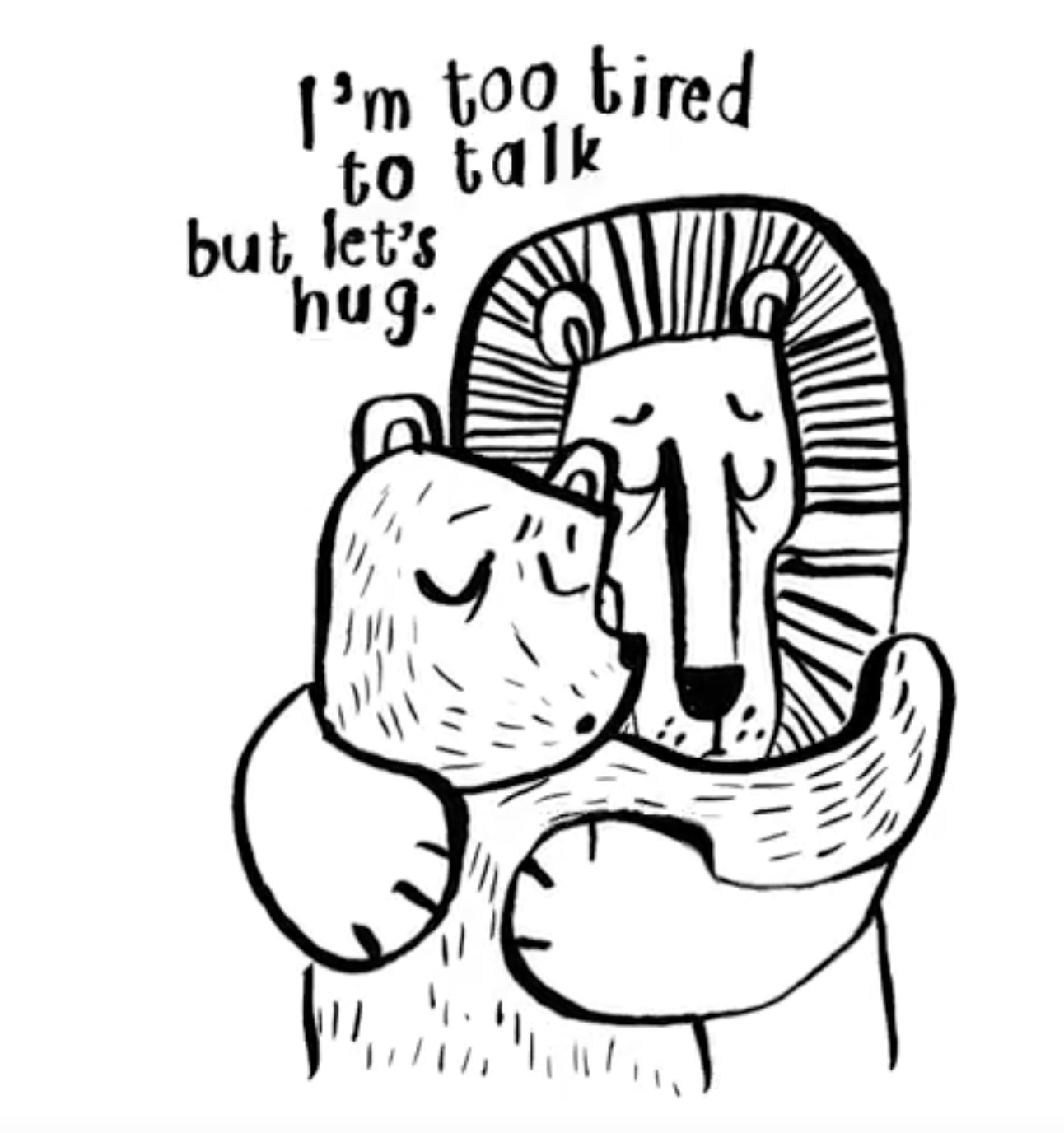
CupOfTherapy's most popular picture of a bear and a lion hugging. Illustration: CupOfTherapy
Mental health issues are something we’ve only really started talking about in the last couple of years. How are people coping with it? What sort of mental health situation are we in at the moment?
AE: That’s a good question. People have very different ways of coping. The last few years have been tough, what with COVID and now the war and all the political upheaval. So people are stressed, and a lot of anxiety’s being triggered. Plus I think a lot of people are struggling to maintain their hope and belief in a better future, and with their ability to keep smiling and hold on to their jobs and support their families. A lot of people have big problems with mental health.
Now though is the perfect time to talk about them and to encourage people to open up. That’s why we urge everyone to talk to someone. If someone needs professional help, we encourage them to look for it – whatever mental health or well-being problem you’re plagued by, you don’t have to suffer in silence.
It’s a difficult time at the moment, which is why we emphasised hope and endurance in the talk we gave in Narva. Which is to say we focussed on our ability to navigate our way through complex situations and how we can learn from them and more effectively fight back. That’s one of the key things CupOfTherapy is focussing on this year as a whole, really.
I don’t know how familiar you are with the term ‘resilience’, but it’s something we can all learn. Whenever we’re faced with a crisis or a difficult time in our lives we use the necessary tools to cope with it, and every hard moment teaches us that resilience, which is really important.
The last few years have been hard for everybody. The pandemic and the war have impacted on people’s personal and professional lives. What tips do you give people for maintaining balance between their mental health and everything that’s going on in the world? How can we feel better and make ourselves more competitive?
AE: I imagine we’re all in the same boat when it comes to striking a balance between our work lives and our private lives. That’s the one thing I encounter in my work more than anything else. I hope focussing on this aspect, which is an important one, is something everyone gets the chance to do – how to be balanced and happy in your family life and at work.
A lot of people started working from home during the pandemic, but it wasn’t all fun and games. There are plenty of people who suffer in their own way if they don’t have their colleagues there for back-up. And meetings with everyone in the same room are a thing of the past. All of which means that lots of people who work from home are lonely. They don’t talk to their colleagues, which isn’t good, because we need actual contact with other people. That’s something I deal with a lot.
I saw a video in which you both say you want to make mental health issues more visible. Is that why you decided to go on the road and talk to people face to face?
AE: That’s definitely one way of doing it, yeah. Our pictures aren’t meant to provide direct answers to questions, but to get people thinking. Perhaps they’ll awaken certain feelings in them.
So in meeting with people and running our workshops we’re encouraging people to think. At the workshop we ran in Narva we came up with 15 amazing animal pictures. Those moments when you talk to someone eye to eye imbue a sort of strength of their own, and the people who participate in the workshops take a lot away with them.
That’s why I feel they’re such a good way of promoting mental health awareness and talking to people and holding a dialogue. And it wasn’t just me doing all the talking in Narva – I spoke to the people who came along as well and answered their questions. I have to say to their credit that they asked a lot of very intelligent and reflective questions. In that way, what we do has a big impact on people.
MP: There’s a lot of factual information about mental health, but it tends to be very clinical or medical in its perspective, and very serious. That’s why you often get the impression that the issue itself only leaves people more anxious and depressed. My aim is to bring out the positives in all this. It’s a serious health issue, but I want people to use these pictures to find an easier way to reflect how they’re feeling.
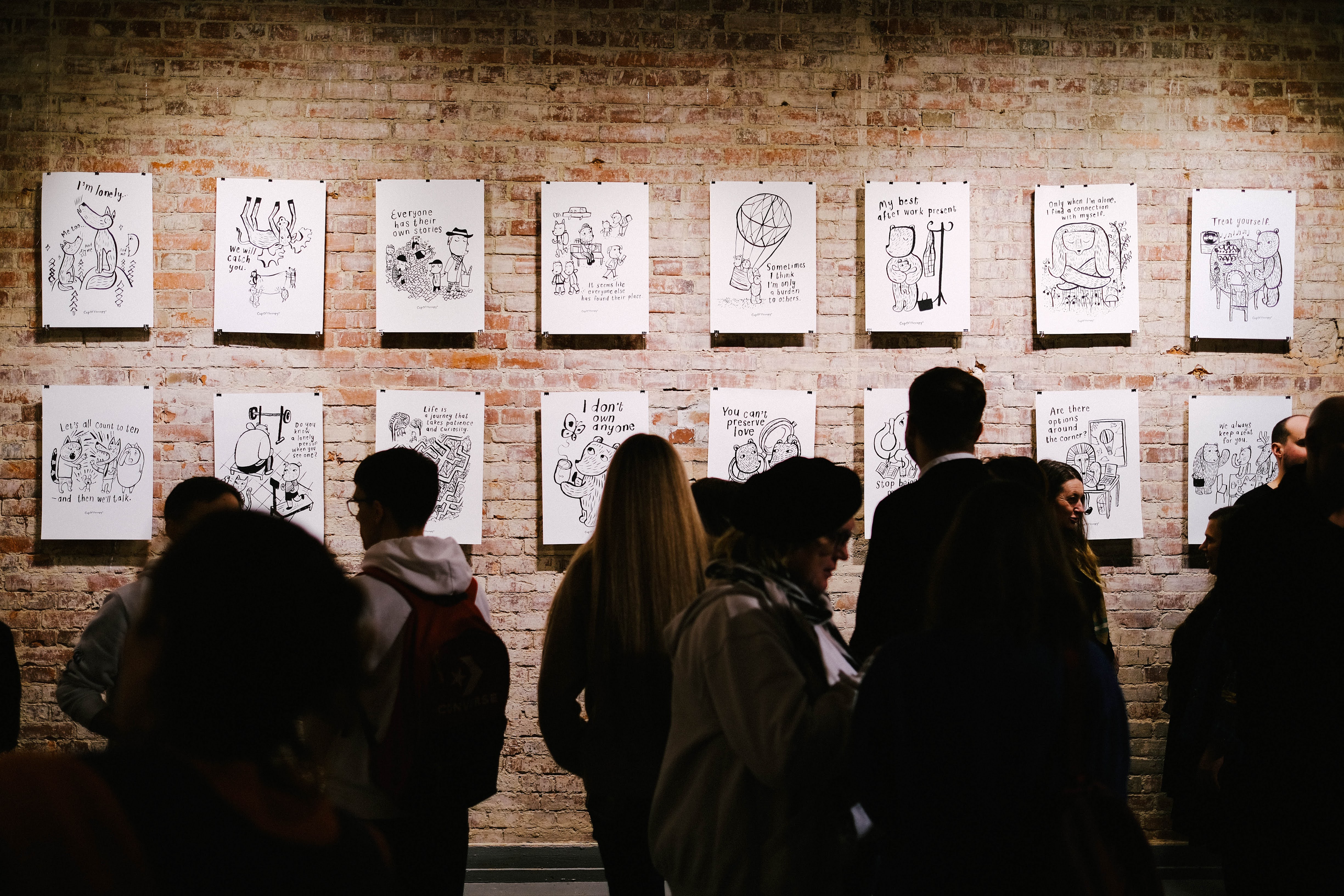
Photo: Anastassia Volkova
You present mental health issues to people through pictures of a bear hugging a lion. But online we’re exposed to images of war and death and destruction as well. How do you balance out the good and the bad?
MP: Everyone needs a certain amount of information, but I don’t think you have to search it out especially. The people you interact with on social media or your friends will give you the information you need. I guess it’s true that people tend to seek out the worst and scariest kind of information, but I’m not at all sure that’s the healthiest way of dealing with your fears. The amount of information you have is hard to balance, which is why I like to use positive pictures to open people’s eyes and get them thinking differently.
AE: As Matti said, it’s very important to impose limits on yourself in terms of what news you consume and how much of it you consume. Seek out information from intelligent sites and be critical in regard to the media you follow. It’s also important that you don’t consume media 24/7. Check the news once a day. That’s enough. Of course it’s important to stay in the loop, but it’s not something you should spend your whole time doing.
We should focus instead on what’s good in our lives, and be grateful for what we have – good health, a roof over our heads, a place to live, enough to eat. Those are things not everyone has. So it’s very important to be thankful for them if we do have them, because it helps us feel better about ourselves and hold on to hope.
MP: There’s no easy way of maintaining that balance between good and bad, especially these days, but I still encourage everyone to try.
AE: That’s why people like our pictures, even if they talk about difficult things like depression and miscarriages and other hard-hitting issues. The point to them is buried deep inside that difficult thing, but that’s also what ultimately empowers you.
They mightn’t be happy pictures, but we want them to instil hope and encouragement when people look at them. Which is why we need the pictures of the bear and the lion hugging.
I took a look at the pictures on your Instagram and it was one of the most positive experiences I’ve had in ages! But it also made me realise that a lot of my friends have started posting pics of cats and puppies and babies on social media of late. Is that one way people have of coping with difficult issues?
AE: No doubt the reason is that kittens and puppies and babies are so cute, so pictures of them spark positive emotions. That’s why I think looking at them is so important.
If we watch the news and all we see is terrible things happening around the world, it’s always a good idea to take a walk somewhere nice or watch a video of a kitten or a baby. That’s a very healthy approach to things, because it leaves us feeling better.
MK: It’s the reality of things as well. A lot of people these days are in survival mode, just trying to get by. They change up their appearance, indulge in roleplay and take loads of photos of their day-to-day lives and the positive things around them. It’s like a different take on things, another reality. We feel good when we see our friends and get to be a part of their family lives and the things they do every day. That helps bring balance into our lives.
The field you work in is essentially the creative industry, because you’ve transformed these pictures into products. Does that mean you’ve managed to turn mental health into a profitable business for yourselves and made a financial success of it?
MK: The pictures were just a hobby for us at first. Two months after we set up our Instagram and started posting pics there we were contacted by three Finnish publishers who wanted to turn them into a book. I’ve provided illustrations and T-shirt designs for a range of brands now. That’s how our brand started growing – one thing led to another.
AE: Distributing our pictures and meeting people is the main thing we’ve done so far. The majority of it we do for free, but we’re also represented by an agency that markets CupOfTherapy products. These days they’re available as far afield as Japan, Korea, China and the United States, and in Europe as well of course.
We’re working with some big companies who relay our message and consider making mental health visible very important, including 7/11, Muji, Samsung and Target.
We never work with anyone just because they pay well. The key thing for us is that they share our principles. We’re also very careful about how we work with others – we don’t want to be filling the world with yet more plastic. But yeah, while cooperation’s really important to us, offering mental health support trumps making money.
CupOfTherapy
Antti Ervasti and Matti Pikkujämsä from Finland say CupOfTherapy can be used to introduce mental health into everyday conversation and to eliminate the shame and guilt that are all too often associated with it.
They say the animal illustrations free us from the rolls we have been taught or grown used to. For example, a lion – traditionally depicted as a powerful, aggressive creature – can also be vulnerable. These unique images, hand-drawn in black and white, can open up new perspectives, help to establish a human connection and create space for everyone to interpret their feelings.
Pikkujämsä’s empathetic animal drawings, combined with Ervasti’s expertise in the field of mental health, offer understanding, hope and a sense of security – none of us are alone at the crossroads of our lives. The issues examined by CupOfTherapy are universal ones to which we can all relate.
The two men gave a public talk in Narva on 9 March about how art can be used to open up issues affecting mental health. They also conducted a workshop at which they met and chatted with their audience face to face before creating customised illustrations for the participants to take home with them. See the pictures from the event:
Instagram: https://www.instagram.com/cupoftherapy/
Website: https://cupoftherapy.net/

